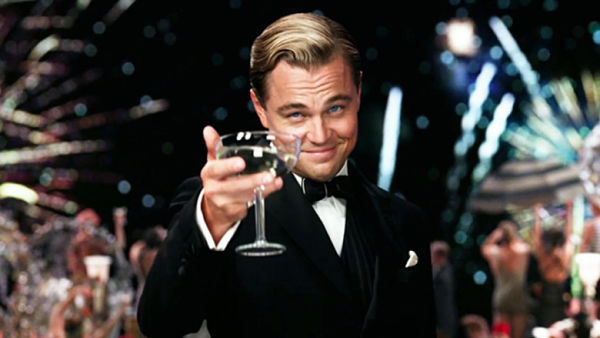How can you resist? The roaring ’20s. The decadence. The romance. It’s Gatsby fever!
Gatsby Fever
Whether it was Alan Ladd (1949), Robert Redford (1974), Toby Stephens (2000), or Leonardo DiCaprio (2013) in the titular role, we watched film adaptation after film adaptation of The Great Gatsby. You may prefer one version over the other (I’ll take director Baz Luhrmann’s curtain scene every time), but one thing remains the same — each film studio had to pay for the rights to the story.
That all changed on January 1, 2021. That’s when F. Scott Fitzgerald’s great American novel entered the public domain. No longer would people have to pay to use his story or his characters. Anyone can now publish their own edition of the book or adapt it to their whims.
Already, a ton of Gatsby-inspired books are making their way into the marketplace. Look at the Gatsby prequel Nick by Michael Farris Smith. It tells the story of Nick Carraway, The Great Gatsby narrator, before he meets the man himself. There’s even a vampire twist with The Great Gatsby Undead by Kathy Briggs.
How Copyright Works Today
Whether or not you have Gatsby fever yourself, you may have some questions about copyright and how it works.
What Is Copyright
According to DICTIONARY.COM, copyright is “the exclusive legal right, given to an originator or an assignee to print, publish, perform, film, or record literary, artistic, or musical material, and to authorize others to do the same.” Simply put, it is is illegal for someone else to copy your work without permission.
How to Copyright a Work
Copyright happens the moment you put down an idea down in a “fixed and tangible” format. That’s right. All you have to do is write it down, voice record it, or film it. It becomes your intellectual property when you commit to it. Put it down! Your copyright counts whether your work is published or not.
Myths about Copyrighting
There are a lot of misconceptions about copyrights. For one, you do not need to register a copyright, although you can choose to do so. Some people argue this could help support a legal defense, though your copyright is technically legal without it. Also, although it was once required to have a copyright symbol associated with your work, this is no longer the case. If you choose to add one anyway, use the © followed by the year of publication and your name.
Copyright Laws
It is important to understand how long copyrights last, especially since laws have changed over the years.
- Pre-1978: U.S. copyrights lasted 28 years after publication of the work and could be renewed one time for an extra 28 years.
- 1978: U.S. copyrights lasted the life of the creator(s) plus an extra 50 years.
- 1998: U.S. copyrights from 1923 to 1977 were set to last 95 years. U.S. copyrights after 1977 now last the life of the creator(s) plus an extra 70 years.
The Public Domain
Once copyright protection runs out, a creative work enters the public domain. This means it is fair game for people to use in the manner they choose without legal repercussions.
Some people think of the public domain as a way to steal ideas. After all, if it was THEIR creative work, they’d want to keep it under lock and key. Their families and estates should reap the benefits for all time.
I see it somewhat differently. Artists enjoy the lion share of accolades during their lifetime (unless their work was published posthumously) and those benefits continue for another lifetime, another 70 years! They do reap the benefits, and rightfully so. Releasing those ideas back into the world is a way to celebrate the artist, to build on their legacy. It is a boon for creative types everywhere.
After the changes to copyright law in 1998, books from the 1920s are finally starting to land in the public domain. That’s why there was been a resurgence of Gatsby fever in 2021. Check out this sample of books from some very famous writers that also entered the public domain that year:
- Agatha Christie – The Secret of Chimneys
- Franz Kafka – The Trial
- Ernest Hemingway – In Our Time
- Aldous Huxley – Those Barren Leaves
- Sinclair Lewis – Arrowsmith
- H. G. Wells – Christina Alberta’s Father
- Edith Wharton – The Mother’s Recompense
- Virginia Woolf – Mrs. Dalloway
Do they inspire you?


Leave a Reply